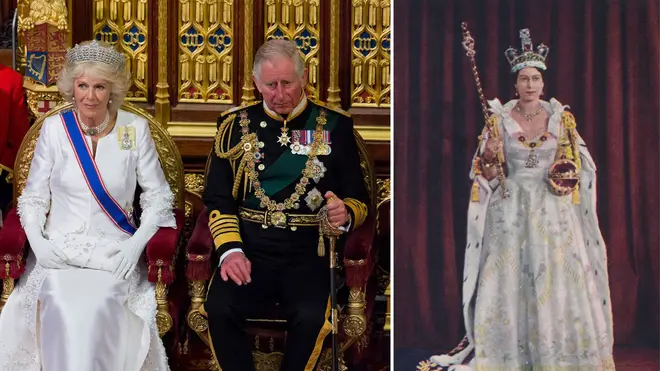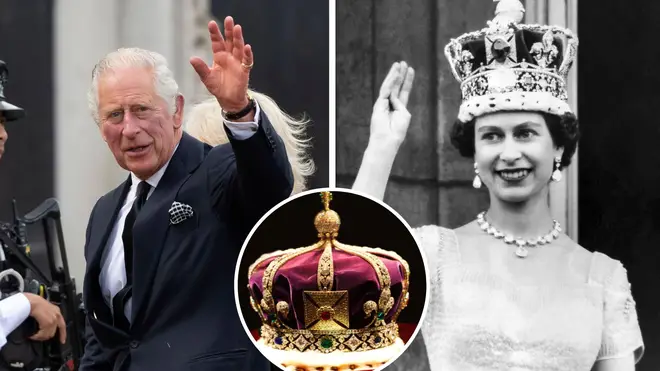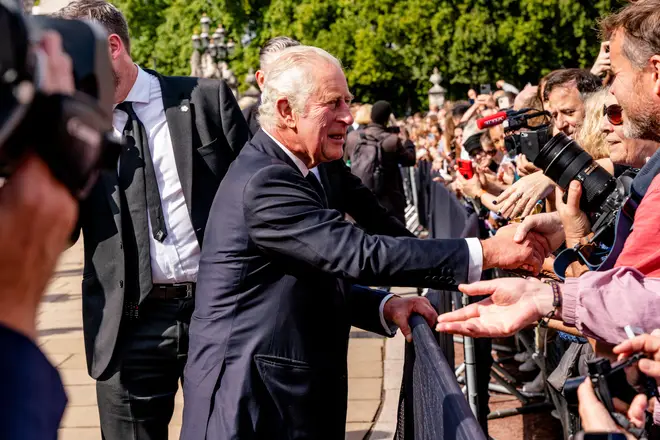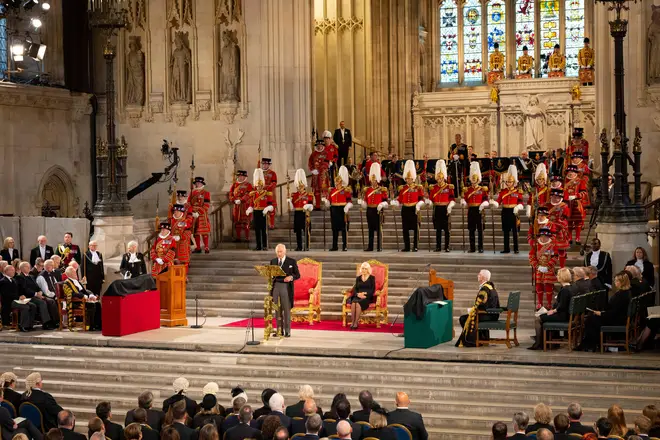
James O'Brien 10am - 1pm
11 October 2022, 18:00 | Updated: 4 November 2022, 09:43

King Charles is said to have demanded a 'scaled down' coronation ceremony lasting just one hour with only 2,000 guests due to the crippling cost of living crisis.
The ceremony, which is set to take place at London's Westminster Abbey, will be held on Saturday, May 6 next year.
Buckingham Palace said the ceremony will be "rooted in longstanding traditions and pageantry" but also "reflect the monarch's role today and look towards the future".
It is expected to be on a smaller scale and shorter, with suggestions that it could be cut down by two hours with guest numbers reduced from 8,000 to around 2,000.
The ceremony will also be more inclusive of multi-faith Britain than past coronations but will be an Anglican service, it is understood.
It is being slimmed down in light of the cost of living crisis, in a bid from the King to establish a more modern monarchy.
MPs have called for the May 1 bank holiday to be moved to mark the occasion.
"To combine the two events would be welcomed by the entire nation," said Tory former Cabinet minister David Jones.
"It would make a very special memory for all of us."
Tobias Ellwood, another Tory former minister, said: "A bank holiday would help strengthen our transition to a new era."
Read more: Where will King Charles III and Queen Consort Camilla live?
Read more: Prince Harry and Meghan Markle ‘plan year-long reconciliation with Royal Family’
An occasion steeped in pageantry, the Church of England ceremony will be conducted by the Archbishop of Canterbury, Justin Welby.
Holding the most senior position in the Church of England, the Archbishops of Canterbury have crowned monarchs since 1066, when William the Conqueror ascended to the throne.
It is a ceremony which will also see Camilla crowned as Queen Consort, in a similar but simpler ceremony which follows the King's 'homage'.

The ceremony has traditionally stuck to a similar structure for more than 1,000 years, featuring the crown jewels' coronation regalia.
After Charles's marriage to Camilla, the royal family's website added the get-out clause "unless decided otherwise" to the phrase: "A Queen consort is crowned with the King, in a similar but simpler ceremony."
Despite King Charles taking on the responsibilities immediately, a royal coronation tends to take place several months after the death of the previous monarch, to allow a long interval for mourning.
The extended timeframe is also a practical measure, taking into account the organisation needed to carry out such a ceremony.

When it comes to the details of the event, there are six basic phases involved: the recognition, the oath, the anointing, the investiture - which includes the crowning - the enthronement, and the homage.
During the ceremony, the monarch takes the coronation oath - the words of which have varied over the years.
Queen Elizabeth II said in her oath that she would rule according to law, exercise justice with mercy, and keep up the Church of England.
After making the oath, the monarch will then be "anointed, blessed and consecrated" by the Archbishop before being anointing with holy oil - a central act of the religious ceremony.

King Charles will be seated in King Edward's chair - an item which dates back to 1300 - with the ornate seat having been used by every Sovereign since 1626.
The monarch will then receive the orb and sceptres, before the Archbishop places St Edward's Crown on the Sovereign's head.
The Palace add that "further details will be announced in due course".